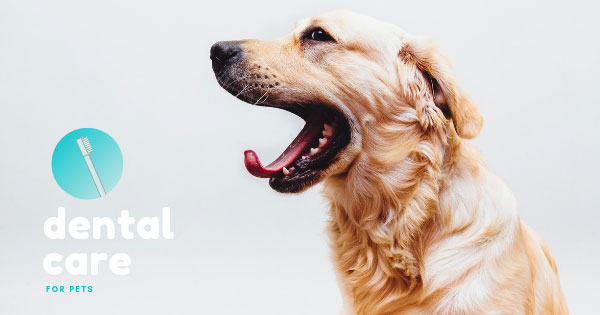
Dental diseases affect the vast majority of pets. So dental care for pets is important. They can’t take care of their teeth themselves and can’t tell us when they have a dental problem. What’s more, they will continue to eat even when they’re in considerable discomfort. A buildup of tartar can harbor bacteria and create grounds for periodontal (gum) disease, which can cause inflammation and tax the body’s immune system. Other dental diseases that can affect your pet include pyorrhea (pus between teeth and gums) and gingivitis (inflammation of the gums). Symptoms of dental issues may include:
- Bad breath
- Teeth that are covered in a yellowish-brown crust of plaque
- Reduced appetite or refusal to eat
- Bleeding from the mouth
- Red or swollen gums
- Loose or broken teeth
- Extra teeth
- Swelling in areas surrounding the mouth
- Abnormal drooling, chewing or dropping food from the mouth
Dental issues in pets require treatment, which can range from dental cleanings, tooth extractions, and a complete ultrasonic polishing. Dental care for pets at Naples Coastal Animal Hospital is all about the comfort and quality of your pet’s life. We have a full dental unit to perform a range of dental procedures tailored to the specific needs of your pet.
What to Expect – Before, During, and After the Procedure
Before Procedure Care
Prior to your scheduled appointment, you may be asked to withhold food from your pet for a minimum of eight hours to ensure your pet’s safety during the procedure. This will, however, depend on your pet’s pre-existing medical conditions, age, or any medications they’re on. Water should be left down overnight until the morning of the appointment. If your pet is on insulin or any medication, the vet will let you know whether to reduce or withhold dosage prior to the procedure. Expect to drop off your pet at the clinic early for their pre-anesthesia exam, and to get them settled.
During the Procedure
When you visit the dentist you know the importance of what’s being done and can do your best to keep still, pets need to be anesthetized because they react to dental procedures by moving, biting, or trying to escape. Anesthesia makes it possible for the vet to conduct a thorough examination, take x-rays, and safely clean your pet’s teeth. It will also reduce your pet’s anxiety, pain, and stress, ensuring a safe and comfortable experience. Your pet will have a pre-medication injection, usually a combination of pain relief and a sedative.
The vet will remove the plaque and tartar buildup and ultrasonically polish your pet’s teeth. They will also use a dental probe to look for infections in the gum and around the tooth roots. Dental x-rays may be recommended for a full evaluation of your pet’s oral health and to determine if there are any “hidden” diseases present. If your pet has any damaged teeth, they may be extracted or another procedure may be recommended.
Post Procedure Care
Even after an extensive oral procedure, your pet may not exhibit signs of pain or discomfort. So, it’s up to you to keep them comfortable until their mouth heals and returns to normal. After the procedure, your pet may experience some level of soreness, inflammation or discomfort. The vet may prescribe anti-inflammatory pain medication and antibiotics to help with the healing process.
Some pets can have an upset stomach after the procedure, so a bland meal on the first evening is a safe choice. Prepared soft foods are recommended for the week following the procedure, or until your pet has fully recovered. It is best to avoid moistened dry food or canned food as it can pack into open wounds and prolong healing. Avoid hard treats to prevent damage to any sutures in your pet’s gums. You will have a follow-up appointment 5-7 days after the procedure to check your pet is healing correctly.
After the procedure, you will be shown how to brush and care for your pet’s teeth in a safe and easy manner. If at any point you’re concerned about your pet’s progress after the procedure, don’t hesitate to call us to discuss your pet’s aftercare needs.
Schedule your pet’s dental check with Naples Coastal Animal Hospital today!
